We’re all threatened when basic rights are weak and hailed as secondary to a Higher Authority
By Susan Weiss
Published in the Times of Israel Blogs
MAR 5, 2023, 4:18 PM
So here we are again. Still using the Fast of Esther to raise public awareness about the plight of the agunah — a Jewish woman held in marital captivity by her husband’s unwillingness or inability to deliver to her a Jewish bill of divorce (a get). Despite all our collective kvetching, advocating, prenups, and lawsuits over the past decades, the plight of the agunah is still real and still threatens the liberty of Jewish women all over the world.
As a cause-lawyer activist who founded no fewer than two (!) NGOs to try and address this problem, and who has been in the trenches for years longer than I care to admit, it is my opinion that it’s worse here in Israel for the agunah than it is abroad. In the Diaspora, bad men, weak rabbis, and misogynist religious laws are to blame. In Israel, the additional involvement of the state exacerbates just about everything.
Surprised? I will explain how, contrary to popular belief, the agunah problem in Israel is made worse by the state. In Israel, the state constructs the problem of the agunah where none might be; it stymies creative religious solutions to the problem; it draws on the plight of the agunah to buttress rabbinic judicial power; it supports a distanced “rationalized” attitude towards the problem by state actors with an interest in sustaining the problem, rather than eliminating it; and it hurts all of us Israeli citizens by supporting a legal system rooted on the violation of basic rights. I’ll explain.
Numbers. In Israel, more Jewish women are threatened by marital captivity than those in the Diaspora. In Israel, the state requires all Jewish women marrying Jewish men, whether they are religious or not, to marry and divorce in accordance with Orthodox religious rules. This puts all those Jewish women in Israel at risk for marital captivity. In the Diaspora, only religious Jewish women who marry voluntarily in accordance with religious rules are under threat. And those religious women can, theoretically at least, flaunt religious rules at the time of divorce and suffice with a secular, civil divorce to release themselves from the civil bonds of holy matrimony. In Israel, there is no secular divorce. Israeli women cannot get legally divorced as long as their husbands refuse a get. They are doubly chained.
Religious Freedom. In Israel, the state imposes its interpretation of religious law on its citizens, greatly limiting the ways a woman can release herself from marital captivity. In the Diaspora, a woman can decide what version of religious and cultural norms are applicable to her. She can, for example, petition a Conservative beit din to annul her religious marriage. Or she can ask the International Beit Din to declare her religious marriage void. Once in possession of the clerical dispensation of her religious marriage that is consonant with her religious beliefs, the Jewish woman living in the Diaspora can get on with her life with a free conscience that she is not violating any religious norm. In Israel, the state has a monopoly on Jewish law and dismisses non-state rabbinic court decisions as irrelevant. Moreover, the state will join the woman’s husband in holding her in captivity until she undergoes an “official, authentic, and true” religious divorce ceremony overseen by the state. If the state were not involved, more private rabbinic courts in Israel would find creative solutions for marital captivity, allowing Jewish women to get on with their lives with a free conscience and a civil divorce.
Read more in the Times of Israel >
